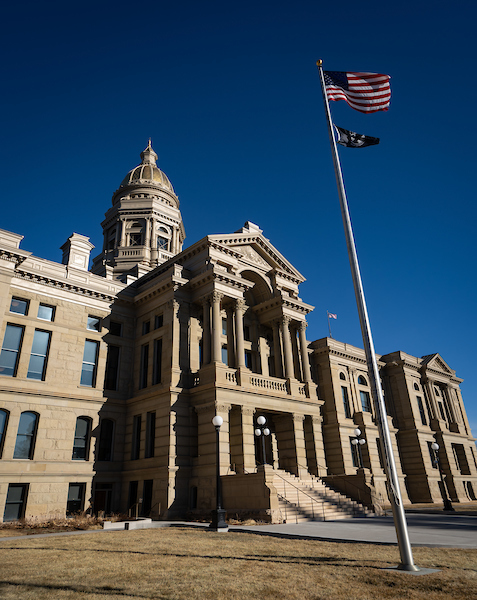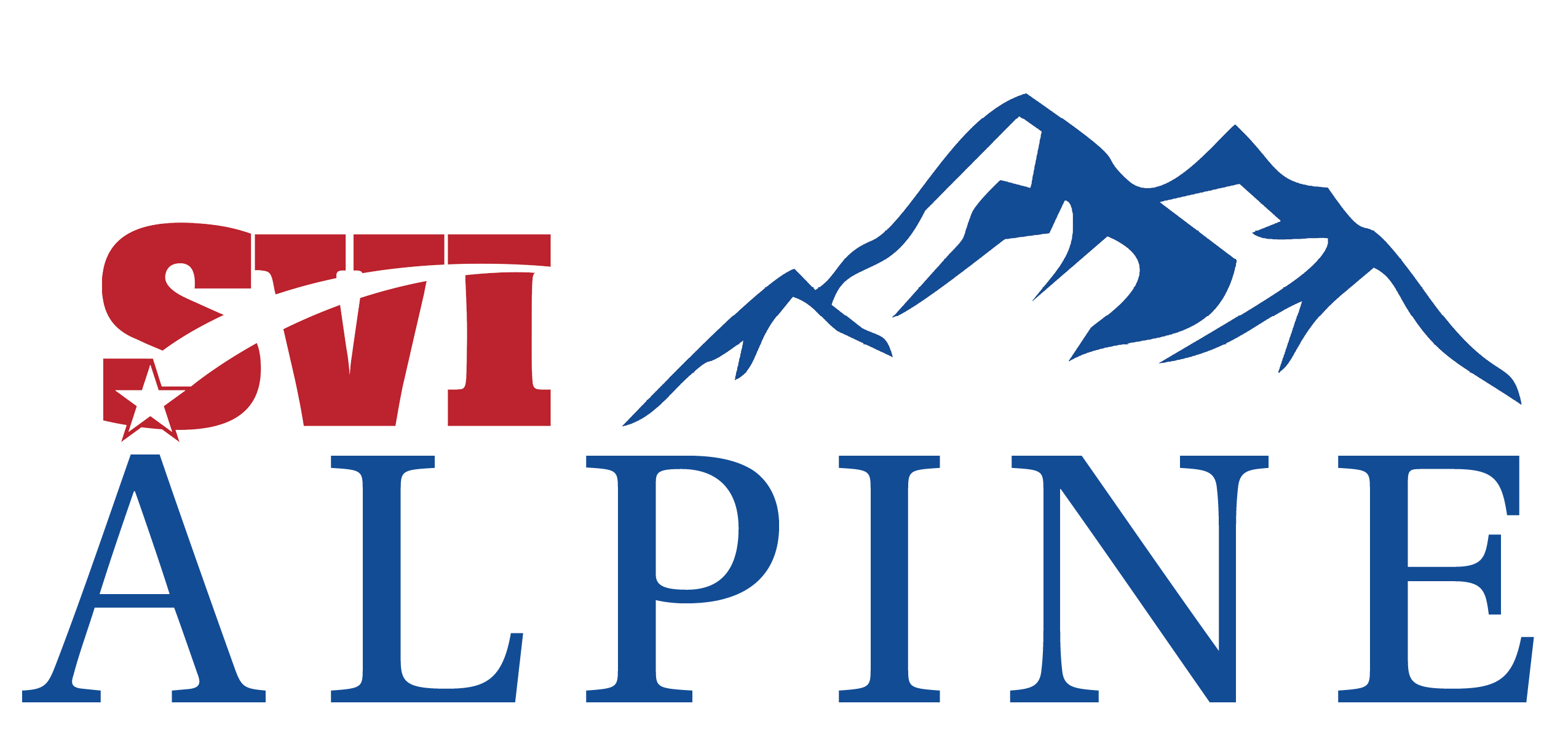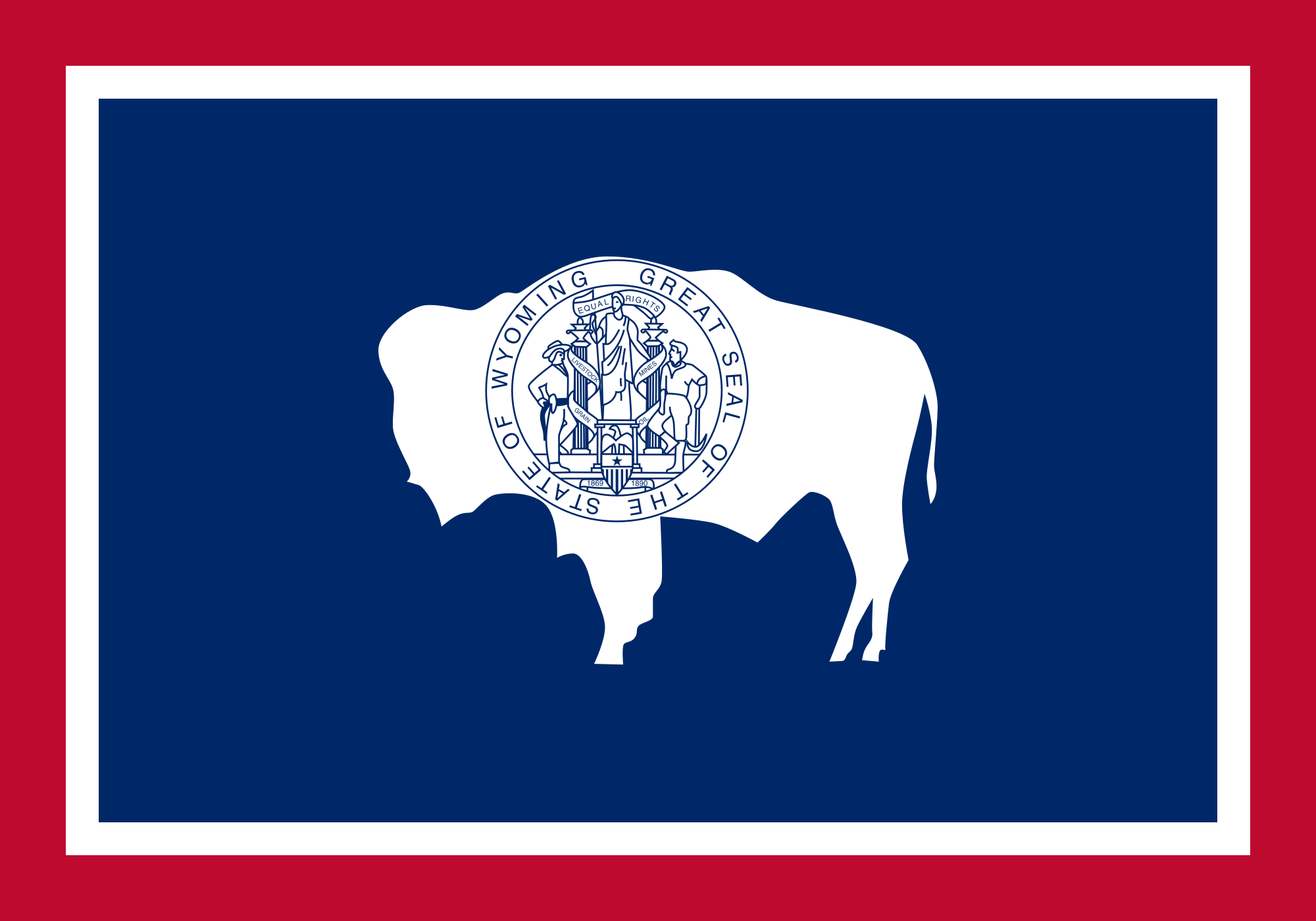Five education bills to watch in Wyoming’s 2025 Legislature
By Wyoming News Exchange
January 14, 2025

An exterior view of the Wyoming State Capitol Building February 13, 2024 in Cheyenne. Photo by Michael Smith
• Lawmakers will consider measures on everything from allowing more charter schools to cellphone bans and relaxing teaching certification standards.
By Katie Klingsporn, WyoFile.com
When lawmakers convene Tuesday in Cheyenne for the 2025 general session, they will begin debating and working up hundreds of bills — including dozens that have implications for Wyoming’s students, educators and families.
Education, which is a perennial subject of interest in Wyoming’s statehouse, has become more politically charged in recent years with bills that seek to regulate everything from bathrooms to what can be taught in the classroom.
That trend is reflected in many of the bills put forward for consideration in the coming session, which touch on issues like student eligibility in sports, the creation of more charter schools and what kind of certification teachers need to helm Wyoming classrooms.
Not all are hot-button. There are bills that would expand opportunities for high school students to earn college credits; boost career and technical education grants; and improve safety measures on district vehicles.
But there are also bills that would restrict school restroom use and sports participation based on biological sex at birth; prohibit the compelled use of pronouns; and erect protections for “patriotic” youth group organizations in schools.
Here are five education bills WyoFile will be tracking once the gavel falls.
Relaxing teacher certification standards
House Bill 100, “K-12 uncertified personnel,” would allow districts and charter school governing boards to employ teachers, administrators and others without a certification or permit issued by the Professional Teaching Standards Board. It would require employees without such certification to obtain a background check.
Rep. Ocean Andrew (R-Laramie) sponsored HB 100 with 12 co-sponsors, many aligned with the far-right Freedom Caucus. He did not respond to a request for comment by press time.
Wyoming school districts have in recent years struggled to hire a wide range of personnel, from bus drivers to meal servers, teachers, speech specialists and sports coaches. Education officials blame the shortfall on stagnant salaries, declining enrollment in teaching programs and other workforce issues.
As a result, districts are increasingly supporting candidates while they finish their education.
House Bill 100 may be an effort to address the state’s teacher shortage, but it’s “irresponsible, shortsighted and dangerous,” according to the Wyoming Education Association’s review of the bill.
A measure “that completely diminishes the professionalism of educators and will significantly negatively impact student performance is not the answer,” said the WEA, an educator advocacy group with more than 6,000 members.
Homeschooling freedom
Currently, a homeschool educational program has to meet the same basic requirements as an institutional educational program. Parents or persons administering homeschooling have to submit a curriculum to their local board of trustees annually showing the program complies with state requirements.
House Bill 46, “Homeschool freedom act,” would remove that requirement, exempting administrators from having to submit curriculum to the local school board. The bill would instead require homeschool administrators to “ensure a curriculum is administered to pupils in the program that complies with the requirements.”
Rep. Tomi Strock (R-Douglass) sponsored the bill with several Freedom-Caucus-aligned co-sponsors. The legislation comes as school choice is gaining popularity.
Partisan school board races
School board elections in Wyoming are nonpartisan, meaning candidates’ party affiliations don’t appear on the ballot and there are no primaries.
Senate File 98, “School board trustees-party affiliation,” would change that. The bill would essentially make school board campaigns partisan by requiring candidates to print their party affiliation on the ballot.
Sen. Jared Olsen (R-Cheyenne) sponsored the bill, with six Freedom-Caucus-aligned cosponsors.
Though explicitly non-partisan, a growing number of candidates and political action committees have been injecting politics into school board races in recent years. This was especially noticeable in 2024, when school board candidates promoted themselves as “conservative” or accused opponents of ties to “extreme progressive groups.” In multiple communities, school board candidates organized themselves into slates that roughly mirrored the legislative divide between hard-line and traditional Republican factions.
The trend toward polarization is concerning for some, who worry the increasing focus on national politics will mean less attention to local issues that matter. Others say the focus on national controversies at the local level reflects the desires of constituents.
Classroom cellphone bans
Student use of cellphones in Wyoming classrooms could become extinct with the passage of Senate File 21, “Ban on cell phone use in schools.” The bill would require Wyoming districts to adopt policies prohibiting cellphone use in classrooms.
Bill sponsor Sen. Wendy Schuler (R-Evanston) was motivated, she said, by a common teacher complaint that policing phone use has become a classroom nightmare.
If SF 21 passes, Wyoming would join a growing and bipartisan trend of new limits on smartphone and social media use in schools. Nearly 20 states, including California, Oklahoma, Minnesota and Florida, have passed laws or enacted policies that either ban or restrict students’ use of cellphones or recommend local districts enact such policies.
At least 18 of the state’s 48 districts — and likely more — do not have cellphone policies, according to data collected this fall by the Wyoming School Boards Association. The lack of district-wide policies hasn’t stopped some schools in those districts from adopting specific rules. But Senate File 21 could make cellphones in all the state’s classrooms a thing of the past.
More charter schools
Growing conservative support for school choice has included a push for more charter schools, which proponents say multiply options for families to shop for schools that fit their needs. A 2023 bill created a new authorizing board for Wyoming charter schools, which began reviewing applications that year.
Eight charter schools currently operate in Wyoming, including three schools the board has since authorized. Skeptics have questioned the transparency and accountability of the schools, which receive public funding but are often subject to fewer regulations regarding curricula and rules.
House Bill 94, “Charter school authorization-amendments” would remove the cap on the number of charter schools the board may authorize. The bill would effectively delete the current cap, which is three schools by July 2026, and make that amount unlimited as of March 15. It would also allow one more school authorization before March 15.
Rep. Andrew (R-Laramie) sponsored HB 94 with 17 co-sponsors.
The bill could require the Legislature to appropriate additional funds from the Public School Foundation Program Account in coming years to account for “an incalculable but potentially significant expenditure increase” in school district Foundation Program funding, according to the fiscal note from the Legislative Service Office.
WyoFile is an independent nonprofit news organization focused on Wyoming people, places and policy.

